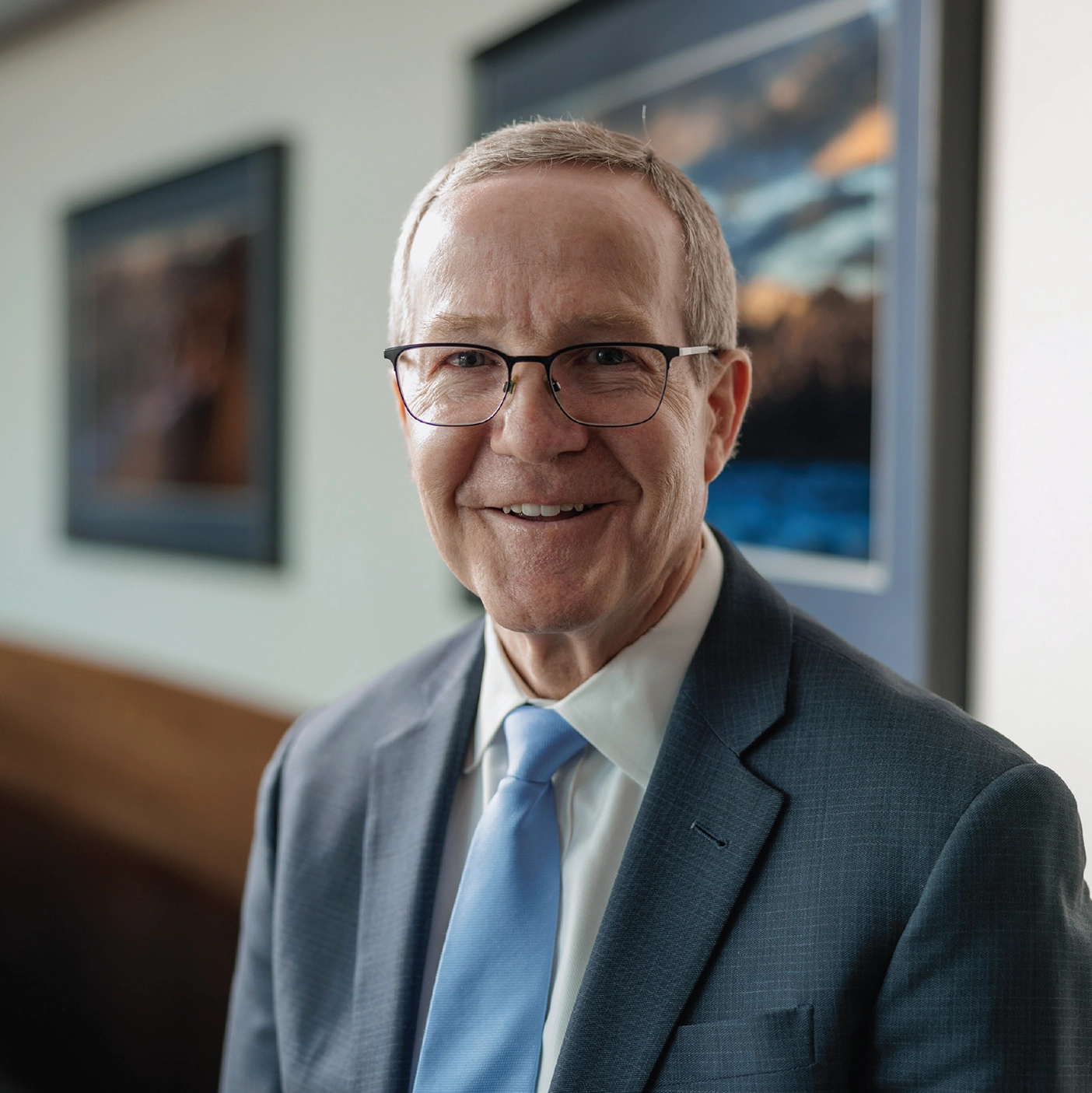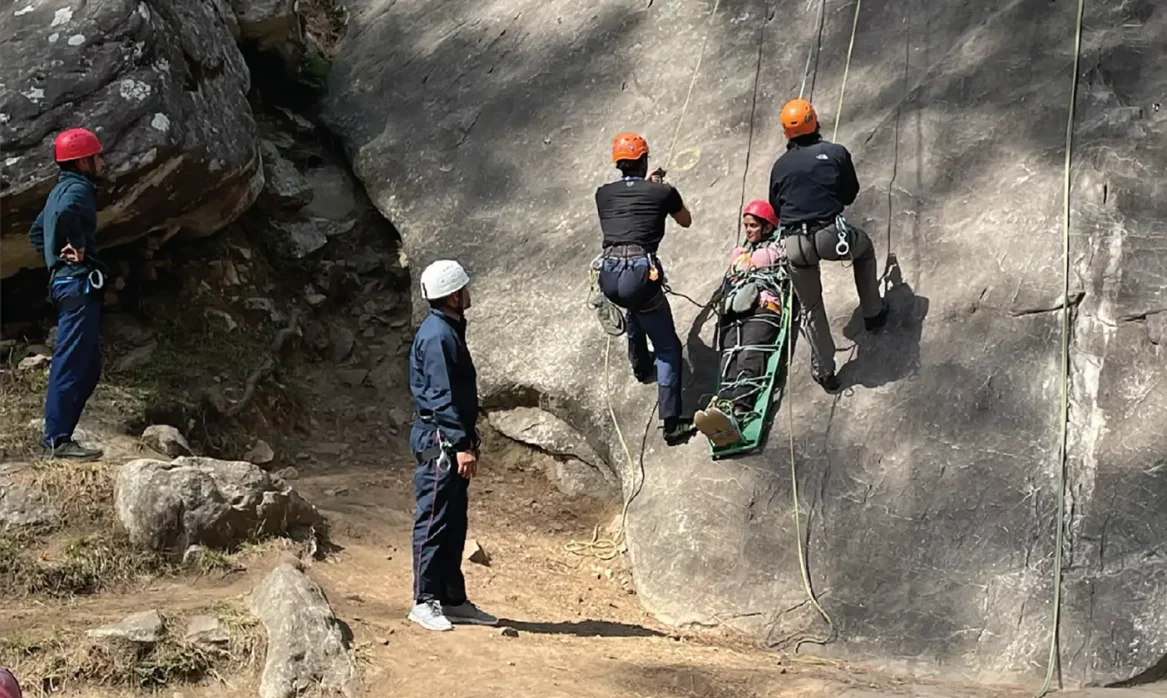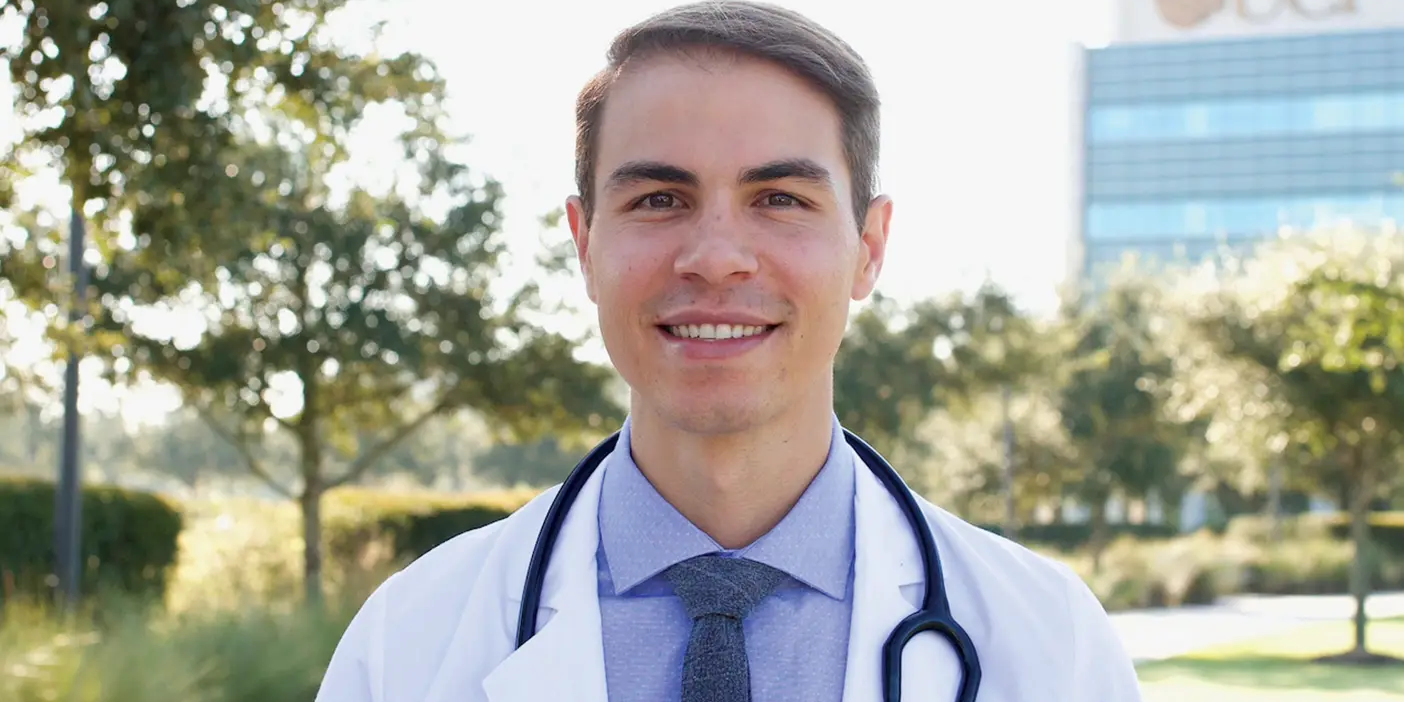The founding dean of the BYU School of Medicine gives insights into the school’s progress.

Hired in November 2024, Mark J. Ott was handed a gargantuan task: build a medical school from scratch. As the founding dean of the BYU School of Medicine, and with the help of a team of experts, Ott will need to develop a curriculum, receive accreditation, oversee the construction of a facility, and eventually admit BYU’s first class of aspiring doctors. Ott has the right credentials. He is a renowned oncological surgeon, a longtime educator (at Harvard, Stanford, and the University of Utah), and has worked as an influential administrator for Intermountain Health. And he’s a man of deep faith. Here he gives an update on the progress and the steps ahead.
How did you react to the July 2024 announcement from the First Presidency that BYU would get a medical school?
A: I was in the operating room that day, and the anesthesiologist told me. I thought, “Wow, this is a big deal.” I had always understood why BYU didn’t have a medical school—they are the most complicated and expensive graduate programs by a long shot. But the Lord knows timing. Revelation is part what, but it’s also when, and I knew this must be the right time.
How would you describe the BYU school of medicine’s mission?
A: This is a spiritually guided medical school. Other medical schools focus on creating great physicians. But BYU’s school of medicine is also meant to further the work of the Lord by supporting the Church’s global humanitarian efforts and spreading the gospel. We’ve been given that mission from the First Presidency and the Quorum of the Twelve. The Savior went about doing good, and medical care is a way to do good.
How will the school focus teaching and research on areas of strategic importance to the Church?
A: We want BYU medical students to be involved not only in delivering great care but in improving the care that goes forward by asking questions and finding answers to those questions. The Church is doing a lot for maternal and child care, with great efforts in nutrition and water and furthering global surgical needs. The Church is also very involved in vaccination programs and other efforts that just make people’s lives better. The research we do will fit in with some of those initiatives.
Will BYU school of medicine graduates be expected to practice abroad?
A: We intend that they’ll be great clinicians who also view their career as a calling and a ministry. While many of them may live and work in North America, some will spend time helping the Church’s efforts around the world. We also hope international students will train here and eventually return to their countries, where they can improve the health care there and provide leadership for the Church.
Who is helping BYU develop its plan?
A: There’s been a giant outpouring of interest in the school of medicine. More than a thousand people have reached out saying they want to help in some way. We have 15 different working groups with more than 140 people working on BYU’s plan. Some are BYU faculty, some are from Intermountain Health, but many are volunteer experts from all over the United States.
What needs to happen before BYU can admit its first class of students?
A: You’re not a medical school until accreditors say you’re a medical school: before BYU can open its doors to medical students, it needs to be accredited by the Liaison Committee on Medical Education. In a best-case scenario, the process takes about two years. We’ll also need to construct the physical building. And we need to create a curriculum, hire faculty, and forge clinical relationships with Intermountain Health, the University of Utah, and other entities.
Are there any meaningful experiences from this effort you’d like to share?
A: It was affirmed to me recently that this is a divinely guided school of medicine.
On a Saturday morning I went to the temple with a problem on my mind. Our curriculum development team was facing an important decision. There were several different options, each with risks and benefits, and our experts were split.
As I served in the initiatory area of the temple, I listened to the profound promises in those covenants and blessings. It struck me that some of the answers I was seeking were actually in those promises. God was enlightening my mind. As I reflected further in the celestial room, He just poured scriptures, part of President Kimball’s “Second Century Address,” and other things into my heart and mind. I left that morning with a clear understanding of what the Lord would have us do.
I later shared this experience with the working team in an email. A team leader replied to say she had also been to the temple that weekend and had done initiatory service. She’d had almost the exact same experience, even down to the same scriptures coming to her mind. That God would do this was not surprising, but it was reaffirming. God is in this.













